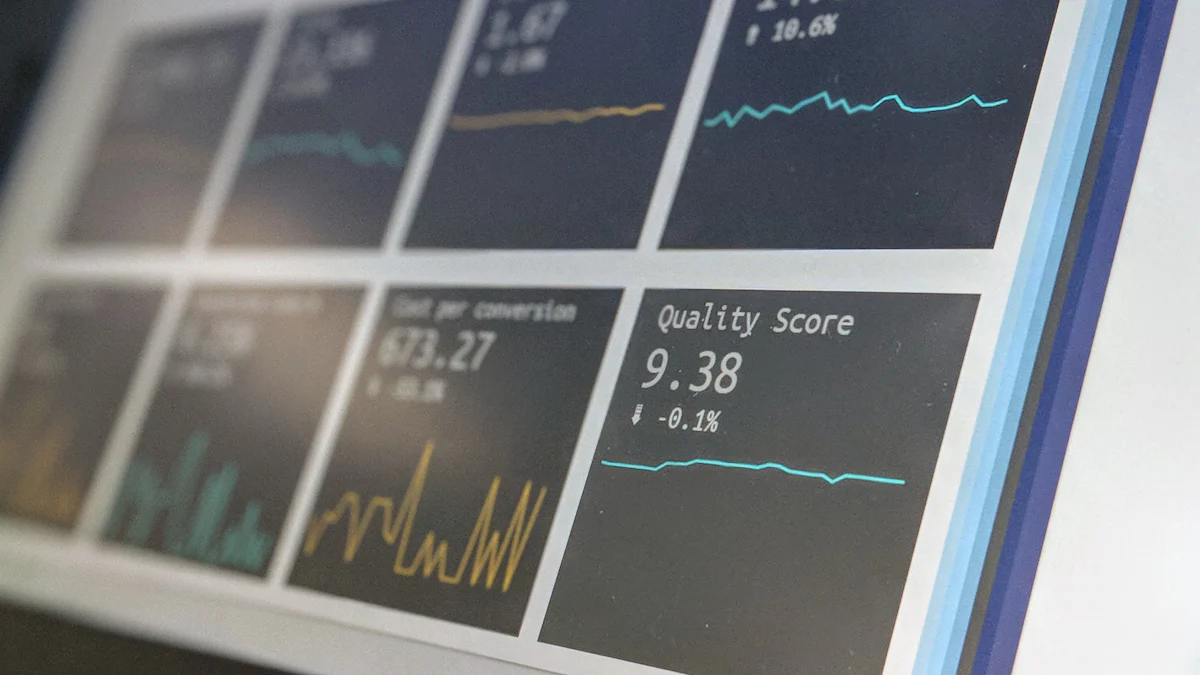How Financial Tools Enhance Your Financial Planning

Financial planning holds immense importance in today's complex world. Technology plays a pivotal role in modern financial management. Financial tools like SIP Calculator, Lumpsum Calculator, and NPS Calculator have emerged as game-changers. These tools promise to make financial management easier and more accurate. Personal finance tools help individuals align with and achieve their financial goals. Gaining better investment services, control, and visibility remains among the main reasons for adopting financial tools.
Understanding Financial Tools
Types of Financial Tools
Budgeting Software
Budgeting software helps individuals and businesses manage their finances efficiently. These tools allow users to track income and expenses, set financial goals, and create budgets. Popular budgeting software often includes features like expense categorization, bill reminders, and financial reporting. By using budgeting software, users can gain a clear understanding of their financial situation and make informed decisions.
Investment Tracking Tools
Investment tracking tools provide users with the ability to monitor and manage their investment portfolios. These tools offer real-time updates on portfolio performance, asset allocation, and market trends. Users can track various types of investments, including stocks, bonds, mutual funds, and more. Investment tracking tools help users stay informed about their investments and make data-driven decisions to optimize their portfolios.
Tax Preparation Software
Tax preparation software simplifies the process of preparing and filing taxes. These tools guide users through the tax filing process, ensuring compliance with tax laws and regulations. Features often include automated calculations, deduction maximization, and electronic filing options. Tax preparation software reduces the risk of errors and saves time, making tax season less stressful for individuals and businesses.
Key Features of Financial Tools
Automation
Automation is a key feature of many financial tools. Automated processes reduce the need for manual data entry and minimize the risk of human error. For example, budgeting software can automatically categorize transactions and update budgets in real-time. Investment tracking tools can provide automatic alerts for significant market changes. Automation enhances efficiency and accuracy in financial management.
Real-time Data Analysis
Real-time data analysis allows users to access up-to-date financial information. Financial tools provide real-time insights into spending patterns, investment performance, and overall financial health. This feature enables users to make timely and informed decisions. Real-time data analysis is particularly valuable for investment tracking tools, where market conditions can change rapidly.
User-friendly Interfaces
User-friendly interfaces make financial tools accessible to a wide range of users. Intuitive design and easy navigation are essential for effective financial management. Financial tools often include dashboards that provide an overview of key financial metrics. Clear visualizations and simple instructions help users understand complex financial information. User-friendly interfaces ensure that financial tools are practical and beneficial for everyday use.
Benefits of Using Financial Tools

Improved Accuracy
Reducing Human Error
Financial tools significantly reduce human error. Automated calculations ensure precise results. Budgeting software categorizes expenses accurately. Investment tracking tools update portfolios in real-time. Tax preparation software calculates deductions correctly. These features minimize mistakes and enhance reliability.
Consistent Monitoring
Consistent monitoring is a key benefit of financial tools. Real-time updates provide continuous oversight. Users can track spending, investments, and tax obligations. Regular alerts and notifications keep users informed. This consistent monitoring helps maintain financial health and achieve goals.
Time Efficiency
Streamlining Financial Tasks
Financial tools streamline various tasks. Budgeting software simplifies expense tracking. Investment tracking tools automate portfolio management. Tax preparation software guides users through filing processes. These tools save time by reducing manual efforts. Efficiency improves as tasks become more manageable.
Quick Access to Information
Quick access to information is crucial. Financial tools offer instant data retrieval. Users can view budgets, investments, and tax details effortlessly. Real-time data analysis provides up-to-date insights. This accessibility enables prompt decision-making and enhances financial planning.
Better Decision Making
Data-Driven Insights
Data-driven insights are invaluable. Financial tools analyze vast amounts of data. Budgeting software identifies spending patterns. Investment tracking tools highlight market trends. Tax preparation software suggests optimal deductions. These insights support informed decisions and strategic planning.
Scenario Analysis
Scenario analysis aids in forecasting. Financial tools allow users to simulate different scenarios. Budgeting software projects future expenses. Investment tracking tools assess potential returns. Tax preparation software evaluates various filing strategies. Scenario analysis helps users prepare for diverse financial outcomes.
Practical Applications in Financial Planning

Personal Finance Management
Budgeting and Expense Tracking
Financial tools like budgeting software assist users in managing their personal finances. These tools enable users to track income and expenses with precision. Users can categorize transactions and set financial goals. Budgeting software provides visual representations of spending patterns. This helps users identify areas for improvement and make informed decisions.
Debt Management
Debt management becomes more manageable with financial tools. Users can track outstanding debts and payment schedules. Financial tools offer reminders for due dates and suggest optimal repayment strategies. This ensures timely payments and reduces the risk of default. Effective debt management contributes to better credit scores and financial stability.
Investment Planning
Portfolio Management
Investment planning benefits significantly from financial tools. Portfolio management tools allow users to monitor and adjust their investment portfolios. Users receive real-time updates on asset performance and market conditions. This enables users to make data-driven investment decisions. Financial tools help users diversify their portfolios and optimize returns.
Risk Assessment
Risk assessment is crucial in investment planning. Financial tools provide insights into potential risks associated with various investments. Users can evaluate the risk-reward ratio of different assets. This helps users make informed decisions and mitigate potential losses. Financial tools enhance the overall risk management process.
Tax Planning
Tax Filing Assistance
Tax planning becomes more efficient with financial tools. Tax preparation software guides users through the filing process. Automated calculations ensure accuracy and compliance with tax regulations. Users can file taxes electronically, saving time and reducing errors. Financial tools simplify tax season and reduce stress.
Maximizing Deductions
Maximizing deductions is essential for effective tax planning. Financial tools analyze financial data to identify eligible deductions. Users receive suggestions for optimizing their tax returns. This helps users minimize tax liabilities and maximize refunds. Financial tools contribute to a more favorable financial outcome during tax season.
Financial tools have revolutionized financial planning. Tools like SIP Calculator, Lumpsum Calculator, Step up SIP Calculator and NPS Calculator provide unprecedented accuracy and efficiency. Financial tools empower users to manage budgets, track investments, and prepare taxes with ease. The transformative impact of these tools cannot be overstated.
Exploring and adopting financial tools can lead to significant improvements in financial health. Users can achieve better control over their finances and make informed decisions. The future of financial planning looks promising with continuous advancements in technology.
